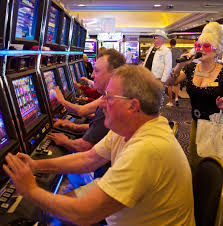Discover why poker tournaments captivate millions globally. Explore strategies, excitement, and the role of online games in shaping modern poker.
Introduction
Poker has long been recognized as the king of card games. From smoky saloons in the Wild West to dazzling casino floors and modern online platforms, poker has evolved into a global phenomenon. Today, poker tournaments attract millions of players worldwide, not just because of the thrill of winning money but because of the challenge, strategy, and community the game provides. With the rise of Dis88 online games, poker has transcended geographical boundaries, making it accessible to players of all skill levels.
In this article, we’ll explore the reasons why poker tournaments remain one of the most captivating experiences in the gaming world, blending skill, psychology, and entertainment.
The Global Rise of Poker Tournaments
Poker tournaments gained global recognition in the late 20th century, particularly through the World Series of Poker (WSOP). This event elevated the game from a casual pastime to a high-stakes sport, watched by millions. The introduction of online games transformed accessibility, allowing players to compete without stepping into a casino.
With online platforms offering satellite events, amateurs could qualify for major tournaments at a fraction of the cost. This democratization of poker opened the doors for everyday players to face off against seasoned professionals. The result? A surge in participation worldwide.
The Skill Factor in Poker
Unlike many casino games that rely heavily on luck, poker blends chance with strategy. In tournaments, success depends on:
- Mathematics: Calculating odds, outs, and probabilities.
- Psychology: Reading opponents’ betting patterns and body language.
- Discipline: Knowing when to fold, call, or raise.
- Adaptability: Adjusting strategies depending on table dynamics.
The element of skill attracts competitive players who view poker not just as gambling but as a mental sport. This intellectual challenge makes tournaments far more engaging compared to other table games.
The Role of Online Games in Poker’s Expansion
The integration of poker into online games changed everything. Before online platforms, participation was limited by location and financial barriers. Now, anyone with an internet connection can join tournaments of varying stakes, from free-rolls to high-roller events.
Some key reasons online games boosted poker’s popularity include:
- Accessibility: Players can join from home at any time.
- Variety: Countless tournament formats such as Sit & Go, multi-table tournaments (MTTs), and bounty events.
- Learning Opportunities: Free practice games help beginners hone their skills.
- Community: Online poker fosters global interaction, bringing together diverse cultures and strategies.
This digital transformation made poker tournaments a mainstream form of entertainment.
Media, Fame, and the Poker Boom
The early 2000s saw a poker boom fueled by televised tournaments and online platforms. Cameras showing hole cards allowed audiences to understand strategies, creating a dramatic and educational viewing experience. Stars like Chris Moneymaker, who won the 2003 WSOP Main Event after qualifying through an online satellite, inspired millions to try poker themselves.
Poker became more than a game—it became a career path. Professional players gained celebrity status, adding glamour and aspiration to the scene.
The Thrill of Competition
What makes poker tournaments so appealing is the intensity of competition. Every decision counts, and one mistake can cost everything. Unlike slot machines or roulette, where luck dominates, poker allows players to influence outcomes through skillful play.
Tournaments also provide massive prize pools. Some global events award millions of dollars to winners, making poker not just exciting but potentially life-changing. This blend of high stakes, strategic play, and the dream of big wins continues to attract millions of participants and spectators.
Poker as a Social Experience
While strategy and money are vital, poker is also about human interaction. Whether played live at a casino or online with chat features, poker builds communities. Many players participate not just to win but to connect with like-minded enthusiasts. Online games have taken this further by enabling global friendships and rivalries that transcend physical boundaries.
The Future of Poker Tournaments
Looking ahead, poker tournaments are expected to grow even more. Innovations like virtual reality (VR) poker tables could make online games more immersive, allowing players to experience the thrill of live tournaments from their homes.
Additionally, the blending of esports culture with poker may attract a younger demographic, further fueling its growth. The future of poker lies in its ability to balance tradition with innovation while keeping strategy and competition at its core.
Conclusion
Poker tournaments continue to attract millions worldwide because they combine excitement, strategy, and accessibility. Unlike games that depend purely on luck, poker rewards skill, patience, and discipline. The rise of online games has only amplified this appeal, making poker more global, diverse, and engaging than ever before.
For enthusiasts, poker isn’t just about cards—it’s about community, challenge, and the thrill of competition. And as technology evolves, poker tournaments will remain at the forefront of gaming culture.
So, whether you’re a seasoned professional or a beginner eager to learn, the world of poker tournaments awaits. Step into the action, embrace the challenge, and experience why millions around the globe continue to fall in love with poker.
Join the excitement and support the growth of competitive gaming—just like you would rally for your favorite league.



